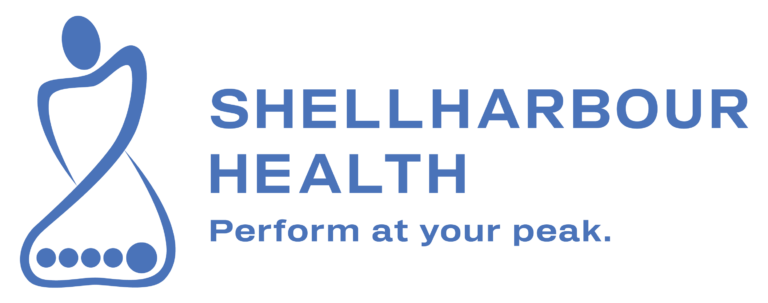In today’s busy world, good sleep is often the first thing we sacrifice—and yet, it’s one of the most powerful ways to improve your health, mood, and physical performance. Whether you’re recovering from injury, managing stress, or simply looking to feel your best, quality sleep is essential.
In this article, we break down why sleep matters, smart strategies to sleep better, and evidence-based supplements that may help you drift off more easily.
Why Quality Sleep Is So Important
Sleep isn’t just downtime—it’s when your body and brain do critical repair work. Poor sleep is linked to a higher risk of chronic conditions like heart disease, obesity, diabetes, and depression. It also impacts your focus, memory, immune function, and emotional resilience.
For those recovering from injury or undergoing physiotherapy, sleep is especially important. Deep sleep enhances tissue repair, reduces inflammation, and supports better recovery outcomes.
Signs of Poor Sleep
- Difficulty falling or staying asleep
- Waking frequently during the night
- Feeling unrefreshed despite 7–9 hours of sleep
- Daytime fatigue, irritability, or poor concentration
If any of these sound familiar, it may be time to make sleep a priority.
Sleep Hacks: Easy Ways to Improve Sleep Quality
1. Stick to a schedule
Sleep experts recommend getting 7-9 hours sleep per night and going to sleep and waking at the same time. Create a routine that supports your body clock with some of the following additional strategies.
2. Use Music or Sound Therapy
Relaxing music (60–80 bpm), white noise, or nature sounds can help calm your mind and encourage deeper sleep. Apps like Calm, Insight Timer, or Spotify’s deep sleep playlists are a great place to start.
3. Aromatherapy
Essential oils like lavender, chamomile, or cedarwood can promote relaxation. Use a diffuser or apply a few drops to your pillow.
4. Try a Weighted Blanket
The gentle pressure of a weighted blanket can help reduce anxiety and improve sleep quality by calming the nervous system.
5. Control Light and Noise
Block out light with blackout curtains or an eye mask, and use earplugs or a white noise machine to create a quiet sleep space.
6. Keep the Room Cool
The ideal sleep temperature is 18–20°C. A cooler environment signals your body that it’s time to rest.
7. Practice the 4-7-8 Breathing Technique
This simple breathing pattern can slow your heart rate and relax your nervous system:
- Inhale for 4 seconds
- Hold for 7 seconds
- Exhale for 8 seconds
Repeat for 4–8 cycles.
8. Use a Sleep App or Guided Meditation
Tools like Headspace and Smiling Mind offer guided meditations, sleep stories, and progressive muscle relaxation to help you unwind.
9. Limit Screens Before Bed
Avoid screens for at least an hour before bedtime, or use blue light blockers or night mode to reduce stimulation.
10. Herbal Sleep Teas
Chamomile, passionflower, or lemon balm teas are natural options to help ease you into a restful state.
11. Keep a Sleep Journal
Track your sleep times, habits, and how rested you feel. Identifying triggers—like late caffeine or stress—can help you fine-tune your routine.
Supplements for Sleep Support
Some people may benefit from short-term use of supplements to improve sleep. Always consult a health professional before starting new supplements, especially if you’re on other medications.
1. Melatonin
Helpful for regulating your sleep-wake cycle—especially if you struggle to fall asleep or experience jet lag. Start with a low dose (0.5–3 mg) 30–60 minutes before bed.
2. Magnesium
Supports muscle relaxation and nervous system balance. Magnesium glycinate or citrate are well-tolerated forms.
3. Valerian Root
A herbal remedy used for centuries to relieve anxiety and promote sleep. Found in teas or capsule form.
4. L-Theanine
Naturally found in green tea, this amino acid promotes calmness and may improve sleep quality, especially when paired with magnesium.
5. CBD (Cannabidiol)
Some people find CBD oil helpful for stress and sleep. Use caution and ensure products are high quality and legally permitted in your region.
Important: Supplements are not a cure-all. They work best when paired with a consistent sleep routine and healthy lifestyle. Consult a health professional re suitability to your health profile.
Final Thoughts: Sleep is Self-Care
Prioritising your sleep isn’t indulgent—it’s foundational to your health and wellbeing. Age, health profile and life changes can also affect sleep quality. At Shellharbour Health, we understand how sleep, recovery, mental health and physical health are closely linked. If poor sleep is affecting your recovery or day-to-day life, our experienced team can help guide you toward effective, sustainable solutions. Acupuncture and exercise prescription may also help to promote sleep quality or more sophisticated advice may be required.
Need support for better sleep or recovery?
Get in touch with Shellharbour Health today or book an appointment online. We’re here to help you sleep well, move better, and feel your best.



